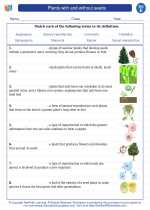Vitamin K: Explained and Studied
Vitamin K is a fat-soluble vitamin that is essential for blood clotting and bone health. There are two main forms of vitamin K: K1 (phylloquinone) which is found in green leafy vegetables, and K2 (menaquinone) which is found in fermented foods and animal products. Vitamin K plays a crucial role in the body's ability to clot blood and is also involved in bone metabolism.
Functions of Vitamin K
1. Blood Clotting: Vitamin K is necessary for the production of several proteins that help regulate blood clotting. Without an adequate amount of vitamin K, the blood would not clot properly, leading to excessive bleeding.
2. Bone Health: Vitamin K is involved in the metabolism of bone proteins and helps maintain bone density. It works in synergy with other vitamins and minerals, such as calcium and vitamin D, to support bone health.
Sources of Vitamin K
1. Green leafy vegetables such as kale, spinach, collard greens, and broccoli are rich sources of vitamin K1.
2. Fermented foods like natto (fermented soybeans) and certain cheeses contain vitamin K2.
3. Animal products such as liver, egg yolks, and meat also contain vitamin K2.
Deficiency and Toxicity
A deficiency in vitamin K can lead to excessive bleeding and poor bone health. Individuals who have malabsorption issues, liver disease, or are taking certain medications may be at a higher risk of vitamin K deficiency.
On the other hand, vitamin K toxicity is rare but can occur when high doses of synthetic vitamin K supplements are consumed. This can lead to interference with anticoagulant medications and potential health risks.
Study Guide
Here are some key points to remember when studying vitamin K:
- Understand the functions of vitamin K in blood clotting and bone health.
- Identify the sources of vitamin K, including both K1 and K2.
- Recognize the potential consequences of vitamin K deficiency and toxicity.
- Compare and contrast the roles of vitamin K1 and K2 in the body.
- Discuss the importance of vitamin K in relation to other nutrients, such as calcium and vitamin D, for bone health.
It's important to grasp the significance of vitamin K in maintaining overall health and its role in preventing bleeding disorders and supporting bone strength.
[Vitamin K] Related Worksheets and Study Guides:
.◂Science Worksheets and Study Guides Fifth Grade. Plants with and without seeds

 Worksheet/Answer key
Worksheet/Answer key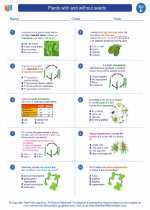
 Worksheet/Answer key
Worksheet/Answer key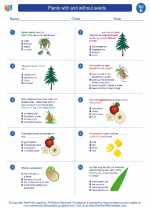
 Worksheet/Answer key
Worksheet/Answer key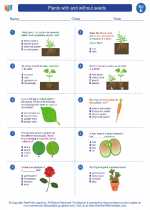
 Vocabulary/Answer key
Vocabulary/Answer key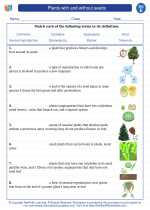
 Vocabulary/Answer key
Vocabulary/Answer key